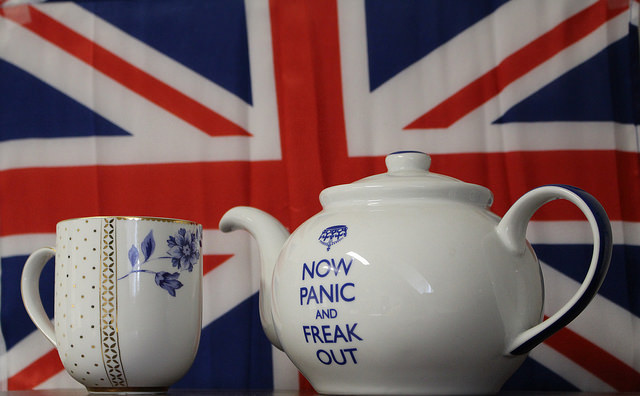Brexit – it isn’t just shocked Britons who are trying to figure out what it means to leave the European Union. The referendum’s effects will go much deeper than the knee-jerk reaction in the markets last week.
Adriano Bosoni, senior Europe analyst for Austin-based global research firm Stratfor, says that the economic uncertainty is the biggest problem in the short-term.
“Uncertainty is the worst enemy of business,” Bosoni says. “We will see that in the coming days, and weeks and probably even months, there will be an economic consequence of the British vote to leave.”
That’s already become evident in the fall in value of the British pound, as well as stock market losses in the UK as well as in other parts of Europe. Bosoni says other EU countries with a lot of Euroskepticism may be at risk of making an exit of their own.
“Italy, France, countries that used to have strong economies before they joined the Eurozone” may consider leaving, Bosoni says.
“Now their populations think because if their membership in the Eurozone,” he says, “and because of the austerity measures that the European Union imposes on them, their economies are not performing as strongly as they should.”
The ripple effects will likely extend far outside of Europe, too.
“The countries that export to the UK and to Europe could suffer if Europe enters a recession,” Bosoni says.
Britain has a large financial services sector, Bosoni says, so banks that work with those banks in the UK will feel the hit.
“If there is a recession in Europe, it means there is less trade, less economic activity, and this could affect negatively all the countries that have trade and financial ties with the UK and with Europe.”















